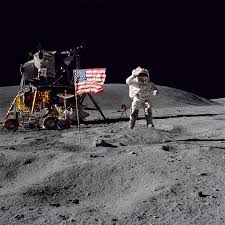The Wonders of NASA’s Solar System Exploration
NASA, the renowned space agency of the United States, has been at the forefront of exploring the mysteries of our solar system for decades. Through groundbreaking missions and cutting-edge technology, NASA continues to expand our understanding of the celestial bodies that surround us.
Exploring Our Neighboring Planets
One of NASA’s primary focuses is studying the planets within our solar system. From Mercury to Neptune, NASA spacecraft have visited and captured invaluable data about these distant worlds. Missions like the Mars Rover expeditions have provided us with detailed insights into the geology and atmosphere of Mars, while probes like Juno have unveiled the secrets of Jupiter’s turbulent storms.
Unraveling the Mysteries of Moons and Asteroids
In addition to planets, NASA has also directed its attention towards moons and asteroids. The Cassini mission to Saturn’s moon Titan revealed lakes of liquid methane, challenging our preconceptions about habitable environments. Meanwhile, missions like OSIRIS-REx are collecting samples from asteroids to shed light on the origins of our solar system.
The Search for Extraterrestrial Life
One of NASA’s most compelling objectives is the search for extraterrestrial life. By studying potentially habitable moons like Europa and Enceladus, as well as exoplanets in other star systems, NASA scientists are pushing the boundaries of astrobiology and astrochemistry in their quest to find signs of life beyond Earth.
The Future of Solar System Exploration
As technology advances and new discoveries are made, NASA’s exploration efforts continue to evolve. From planned missions to return samples from Mars to proposed missions to explore Uranus and Neptune, the future holds exciting possibilities for unraveling further mysteries within our solar system.
Through its unwavering commitment to scientific discovery and exploration, NASA remains a beacon of inspiration for all those who gaze up at the stars in wonder.
5 Tips to Dive into NASA’s Solar System Exploration
- Stay updated on the latest missions and discoveries by following NASA’s official website and social media channels.
- Learn about the different planets, moons, asteroids, and other celestial bodies in our solar system to deepen your understanding of space exploration.
- Explore NASA’s interactive tools and resources online to simulate space missions and learn more about the solar system.
- Attend virtual or in-person events hosted by NASA to engage with scientists, engineers, and astronauts involved in solar system exploration.
- Support STEM education programs that inspire future generations to pursue careers in space exploration and contribute to NASA’s missions.
Stay updated on the latest missions and discoveries by following NASA’s official website and social media channels.
To stay informed about the latest missions and discoveries in NASA’s solar system exploration endeavors, it is essential to follow NASA’s official website and social media channels. By engaging with these platforms, you can gain real-time updates on groundbreaking missions, fascinating findings, and upcoming exploratory ventures. Keeping abreast of NASA’s activities through their online presence ensures that you are at the forefront of space exploration news and discoveries, fostering a deeper connection to the wonders of our solar system.
Learn about the different planets, moons, asteroids, and other celestial bodies in our solar system to deepen your understanding of space exploration.
To enhance your knowledge of space exploration, delve into the diverse array of planets, moons, asteroids, and other celestial bodies within our solar system. By studying the unique characteristics and mysteries of each of these entities, you can broaden your understanding of the vast universe that NASA tirelessly explores.
Explore NASA’s interactive tools and resources online to simulate space missions and learn more about the solar system.
Discover the wonders of NASA’s solar system exploration by delving into their interactive tools and resources available online. With these innovative simulations, you can embark on virtual space missions, gaining firsthand experience of exploring the depths of our solar system. Dive into the captivating world of planetary exploration, engage in educational activities, and expand your knowledge about the mysteries that lie beyond Earth’s atmosphere. NASA’s interactive platforms offer a unique opportunity to immerse yourself in the excitement of space exploration and deepen your understanding of the cosmos.
Attend virtual or in-person events hosted by NASA to engage with scientists, engineers, and astronauts involved in solar system exploration.
By attending virtual or in-person events hosted by NASA, you have the opportunity to engage directly with the scientists, engineers, and astronauts who are at the forefront of solar system exploration. These events provide a unique platform to interact with experts in the field, gain firsthand insights into their work, and deepen your understanding of the groundbreaking missions and discoveries that shape our understanding of the cosmos. Whether through virtual discussions or in-person presentations, participating in NASA events offers a fascinating glimpse into the world of space exploration and allows you to be part of the journey to unlock the mysteries of our solar system.
Support STEM education programs that inspire future generations to pursue careers in space exploration and contribute to NASA’s missions.
Supporting STEM education programs is crucial in inspiring the next generation of scientists, engineers, and explorers to pursue careers in space exploration. By investing in educational initiatives that nurture curiosity and passion for science, technology, engineering, and mathematics, we can empower young minds to contribute to NASA’s missions and advance our understanding of the solar system. Encouraging students to explore the wonders of space not only fosters a sense of wonder and discovery but also ensures a bright future for innovation and exploration beyond our planet.

